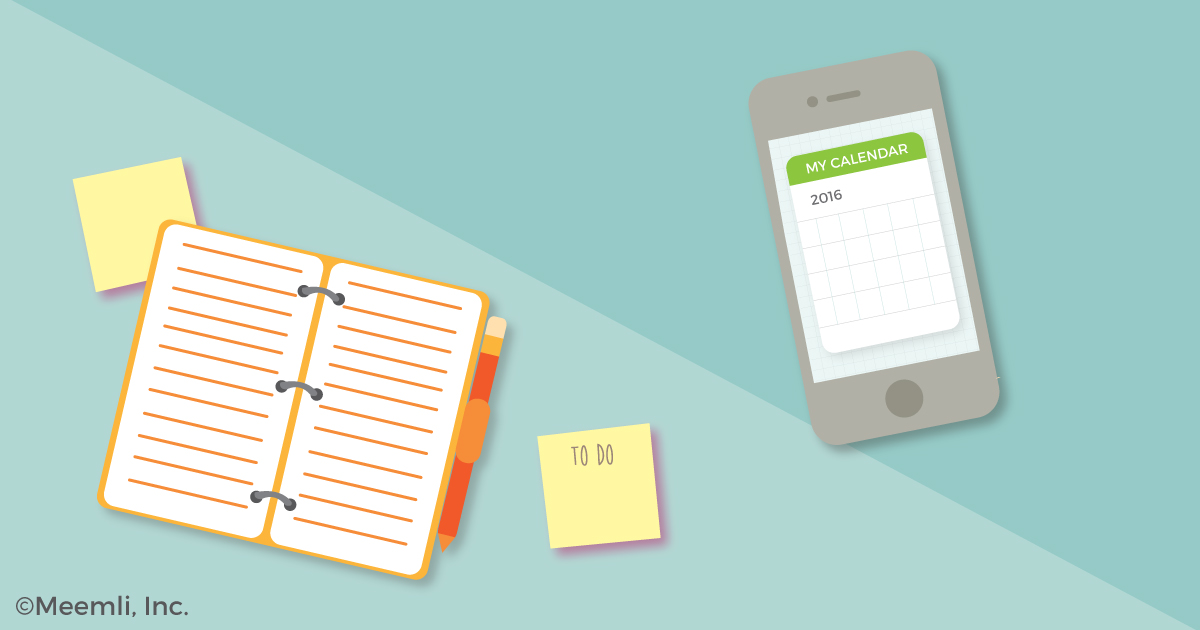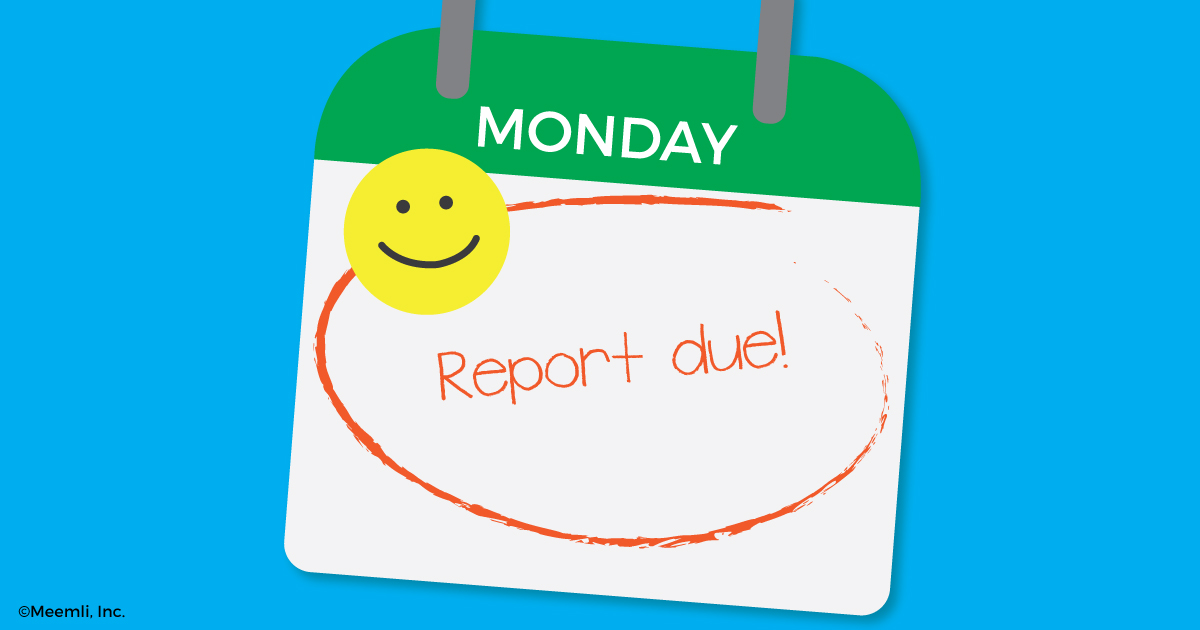Yawn. A dreary winter day? Everything seems like the same-old, same-old, you have too much work to do and spring break is far away? Looking to get re-energized and wondering how to do and be more? This post should help! We have collected Ted and TedX talks by some teens worth watching. They will give a metaphorical caffeine-jolt to your system and make you think “Wow! Maybe I can do something like that” – even if you’re not a teen.
Grab some popcorn and learn something new from these can-do kids!

Image courtesy Idea Go at FreeDigitalPhotos.net
Breaking the Procrastination Habit
Vik Nithy started 3 companies by the time he was 20, and he says he was a procrastinator! Okay, Vik was a procrastinator. He talks about how our monkey brain makes us put things off and how we can overcome that habit. (He also shows how to present without being flustered by technical difficulties – another inspiration!)
Role Models
Tavi Gavinson is a teen looking for a strong female role model, who built a website to help others like her and is on her way to becoming one herself!
Breaking the Language Barrier
Struggling with your “foreign” language requirement? This teen learned to speak over 20 languages using his own unique process. There’s a lot you can learn from Tim Doner!
A Win-Win Approach
How would you handle a lion in your backyard? If you’re Richard Turere, this is what you’d do – without resorting to extreme measures.
We hope you enjoyed these videos as much as we did. Have your own favorite inspirational video? Tell us about it!
Blog
Already dreaming of the day you’d be going to college? Good for you! Of course you have to finish high school, get good grades, do SATs/ACTs etc., but wanting to be in college is an important first step. Another helpful step in making it real is visiting colleges. Touring campuses will help you get familiar with the process and figure out what will work best for you. Also, visiting colleges will make going to college less scary! With Spring Break coming up, our “College Tours: Tips for Teens” will get you started on planning this major road trip.
When’s a good time to start college tours? The short answer: early! When I was teaching a college preparation course, I took freshmen and sophomores on college field trips just as frequently as the juniors and seniors. I found it helped to visit schools early to get a sense of what you are looking for. This way, when application season rolls around, you don’t feel rushed in your choices.
Now, while you may be ready to go, you need to to get your parents to agree too. You can start by sharing our post written for parents on the importance of college tours and how to plan for them. If your parents need more convincing, try these options.
Show you are serious.
You’ve already shown an interest in higher education, so you are off to a great start. Before talking to your parents, figure out what schools are the most appealing and why. Do some initial research to show that you are serious and this is important to you. (Your school counselors may be a helpful resource too.) Your parents may be swayed by your taking the initiative.
Be reasonable.
College visit expenses can add up quickly once you factor in transportation, hotel, and meal costs, so be reasonable about your expectations. You won’t be able to visit every school on your list, so start with the one you like the most and then schedule tours at several colleges that are within driving distance from one another. If you present a thoughtful, realistic itinerary, your parents will be more likely to agree to it.
Keep an open mind.
Maybe your parents insist you visit their alma mater, or what they think is the perfect school for you. Don’t fight it. Stand firm in your choices, after all, you are the one going to college, but be open to looking at a place you might not have considered – you may learn what you don’t want, which can be as important as knowing what you do want. And, you never know, you just might like a school your parents suggested!
Got your parents on board? Once you get to the campus, it’s up to you to make the most of your visit.

Know what to expect.
Visits can range from an hour-long guided tour to an overnight stay in a dorm (offered by some colleges). On the guided tour, a student admissions officer will show you the library, the student union, the bookstore, and the academic buildings where you’d take classes. You’ll also probably check out interesting focal points around campus, such as a famous statue or a lucky fountain.
Ask questions.
Visiting schools allows you to have meaningful conversations with students and staff members who can share information on what’s important to you. You can easily find out how many students attend the school, but what are the most popular student hang-outs? Here’s a helpful list of questions you can ask. And remember, this visit is for you, so ask your own questions; don’t let your parents do the talking for you.
Take notes.
I know, it sounds like an assignment, but you’ll be glad you did it. When visiting several schools back to back, information tends to blend together, and no matter how many times you tell yourself you’ll remember, odds are, you won’t. Make life easier by jotting down a few things that stand out so that you can reflect later. And of course, take pictures, too!
Observe.
Find a bench in the middle of campus, and soak it all in. Can you imagine yourself walking to class everyday? Do the students smile or say hi to you as they pass? What do you notice about how people interact with one another? I’d also recommend looking around the surrounding area. Since you’ll be spending at least four years at this school, it’s important that you like what the location offers. Is there a lively downtown nearby or hiking trails? These things will matter when you desperately need a study break and want to get off campus for a bit.
Break free.
At some point, try to wander around the campus on your own, without guides or parents. Guides and admissions representatives are experts at highlighting the best parts of the university, but you won’t get the complete picture. To form your own opinions, venture out on your own. Here are tips to get a good feel for the campus by exploring on your own without the additional commentary from parents.
Searching for the right college is an adventure. Be mindful of how you feel on each campus, but don’t worry if there’s no magical moment when you just know. Sometimes it takes a while to figure out, and that’s okay. Take time to reflect and enjoy the process. Lastly, remember it is an exciting and scary time for parents as well, so a warm thank you and hug will be a perfect ending to your college tour.
So tell us, what colleges are you looking forward to visiting?
Blog
Check out our companion post “College Tours: Tips for Teens” !
During school breaks, families get busy planning on how to spend the precious time together. If you have a teen in high-school a trip to visit colleges might be just the thing and it is never too early. College tours offer both you and your child an opportunity to start thinking about and planning for college application time – which will show up sooner than you think! Your child will learn about what to look for when deciding where to apply, and it might guide her activities and choices in school. Meanwhile, you will learn about the admissions process, the financial impact and how to figure out the best fit for your child and your family. When I was counseling high school students, I found that a visit invariably had a huge impact. When asked why visiting a college is important, college junior Alyssa said, “There is a totally different feeling when you go from campus to campus. And I had the best feeling at Baldwin Wallace. You just sort of know.” Plus, it can be a lot of fun exploring new places together. So, pack up and hit the road! Here’s how to get started.
Talk it out.
The purpose of college visits is to help your child figure out which school is the best match, so plan together. Arranging to visit your dream colleges may seem like a great idea, but ultimately, it’s important for your child to have some say in the process. Your trip will be a lot more successful if you are able to approach it in a positive, collaborative way. Do this by starting a dialogue, asking questions, and keeping an open mind.
Create a budget.
Your budget will determine what you can do. Are you able to fly across the country, or does a road trip seem more feasible? Can you get away for a week, or just a few days? Campus tours are free, but you need to account for meals, lodging, and transportation. (Don’t forget to add in the extra cost of buying a souvenir shirt or key chain!) Check out this article for some money saving tips.
Choose a region.
You probably won’t be able to visit campuses in both California and New York, so discuss which state is most appealing, then narrow it down to a region with several possibilities. Choose schools that offer different experiences: large and small campuses, a school in the city, and one in a rural town. If you are limited, consider visiting local universities, including community colleges. The goal is to get a feel for the type of school that is most suitable. Often, you won’t know what’s right until you get there.
Consider the type of visit.
Guided Tour
This is the most common type of tour and is typically led by a student admissions officer. You will see the main parts of campus, hear about the school’s history, and learn about academics and activities.
Self-Guided Tour
If you prefer to venture out on your own, the self-guided tour provides a lot of freedom. You can access information on your mobile device, listen to an audio tour on your cell phone, or wander around with a detailed map. Take a look at all these options at University of California, Berkeley!
Overnight Visit
Not all universities offer overnight stays, but if you can find a way for your child to participate in one, take advantage. Seeing a campus at all times of day, meeting a variety of college students, and sleeping in a dorm is a fantastic experience.
Reserve your spot.
You’d be surprised how quickly tour spots fill up, so make your reservations about four weeks in advance. Call the Admissions Office to see what’s available. You can also book a reservation through the school’s website. If you are unable to schedule a formal tour, plan to visit the campus anyway and do a self-guided tour. Check the school’s calendar to make sure classes are in session. You will want to see students milling about campus and have access to staff members who can answer questions.
Make a plan.
Visit two schools per day, spending about three hours at each. Factor in drive time and meal stops, and you have a full agenda! Even touring a small campus can be exhausting, so don’t overwhelm yourselves. Also, save time and frustration by calling ahead to find out where to park. You don’t want to waste time running to feed a meter every hour or risk getting a ticket because you don’t have the proper permit.
Alternative option.
Can’t get away? No problem! You can visit almost anywhere from the comforts of your home. And for free, too!
Take a virtual tour.
Most colleges post videos on their websites. They won’t provide a comprehensive view, but it’s a great starting place. Some schools also have their own YouTube channel with additional videos. Another resource is CollegeWeekLive, which is a virtual college fair. Create a free account to watch presentations and chat live with admissions officers and students.
Talk to students.
Call the admissions office and request a time to chat on the phone with a student representative. After watching videos and researching all the fun facts about the school, it’s still helpful to talk to students who attend the school and can address specific concerns. The admissions office is eager to help and should be happy to set this up for you.
Final thoughts.
Prepare in advance, don’t feel pressure to see every college on the list, and do your research. Most importantly, remember this trip is about your child, not about you – so share your opinions, but let him form his own. For more tips on how to make the most of your college visit, read this parent’s post. And of course, have fun – college trips are often unforgettable, so make sure the memories are good ones!
What advice do you have for parents who are planning a college visit? We’d love to hear from you.
Blog
Each week, you have dozens of things you have to do: study for exams, complete homework assignments, go to sports practices, pick up supplies for a class project, make something for a bake sale fundraiser, and the list goes on. It is not fun when you have that nagging feeling you’re forgetting something critical and worse, the feeling of panic when you get to school and realize exactly what it was you forgot.
With the many things you’re juggling, you know you need to plan ahead to successfully prepare for your school work (check out our previous post on taming assignment anxiety), and pay attention to get-started dates, not only the turn-it-in dates, and make time for everything else in your busy life of course.
Luckily, it’s never been easier to manage your time and stay on top of your school, extra-curricular and social activities. You might already keep track of your deadlines and tasks with an old-school paper planner. If your system is working for you, keep it up. If, like most people, you bring your phone everywhere, but not your planner, then check out the apps below. They each have their own particular strong points and all are free, easy-to-use, and work across different devices. These digital time-management apps make it easy to remember everything you need to do no matter where you are, so you never forget an important assignment or task again.

MyStudyLife
MyStudyLife was built specifically for students. The app enables you to keep track of everything you need in one place: your schedule, homework, exams, and even non-school related events and tasks. You can set reminders for upcoming exams, create schoolwork to-do lists, and set your daily or weekly timetables. Best of all, the app stores your data in the cloud and you can even access all your info offline.
Wunderlist
Wunderlist is simple and beautiful app that you can access from anywhere — your phone, tablet, computer, and even your fancy smartwatch. The app allows you to make simple checklists, add reminders for deadlines, and even share lists, so you can collaborate with classmates on projects. You can create separate lists for different kinds of tasks and organize lists into folders. For example, you can make a “School” folder with “Homework” and “Project Materials” lists, and a “Personal” folder with lists like, “Halloween Party Planning” and “Chores.”
Google Calendar
Despite being a Google product (obviously), Google Calendar works across platforms, including on Apple and Windows devices. G Cal enables you to keep track of all your recurring and one-off events and appointments in a single place. Even better, the app allows to easily coordinate plans with other people. When you create an event, you can add a specific meeting location, add notes about the event, and invite guests. The app sends a notification 10 minutes before the event start time as a reminder. Beyond tracking events, you can also use Calendar to set reminders for specific tasks.
iOS Calendar
Apple’s calendar is another great option for students, especially if you are a fan of Apple’s simple and intuitive design aesthetic. The app has many of the same features as Google Calendar: You can keep track of events, set reminders, and share your schedule with others. You can easily see everything that’s upcoming on your itinerary by setting the app to List mode. In the app’s Day mode, adding an event is as simple as a tap of the finger (or a click of the mouse). And of course, it is automatically synced with your other devices.
Time management? You’ve got it solved! With device and finger, or paper and pen, you can track, plan and check off when done, all the important tasks in your life. Do you have a favorite way to keep on top of your to-do list? Tell us about it!
Blog
An ongoing series where we showcase recommendations from our teachers. Here’s one from our awesome English teacher Noël Young for a fun Young Adult book you wouldn’t want to miss!
When the reality show For Arts Sake starts filming at Selwyn Art Academy, Ethan Andrezejczak and his friends become determined to take a stand. Although the rebellion is not his idea, Ethan follows along with his best friend’s passionate protest of the show and quickly becomes entangled in a web of corruption and scandal. It is refreshing to read a book that tells a meaningful story in a fun way that never feels too heavy or philosophical. The Vigilante Poets of Selwyn Academy by Kate Hattemer. This book is one you will definitely want to check out.

Here are a few reasons why.
It is not your typical dystopian YA novel.
This is not a flashy, doomsday story. Instead, it is a story grounded in real experiences that we can all relate to, but with a funny, quirky spin. The narrator’s sarcastic humor reveals insights into insecurities, fears, and hopes that we can all relate to. While there are no explosions or terrifying supernatural creatures, there is betrayal, a dash of romance, and lots of ridiculous situations. There is also a quiet suspense that will keep you engaged until the end of the story. In the words of our narrator Ethan, “Remember: this is not a novel, not a memoir, not produced by anyone with artistic skill. It’s just about what happened last year. It’s about reality TV, a desperate crush on a ballerina, and a heroic gerbil named Baconnaise. But mostly, it’s about my friends. Please remember: not art, just life.”
It gets teens.
The Vigilante Poets of Selwyn Academy is Kate Hattemer’s debut novel. When asked about her inspiration for writing this book, she says, “My students and siblings were all so funny, so hyperverbal and intelligent, so deeply concerned about the world and their place in it, that I wanted to write for and about them.” As a high school teacher, Hattemer understands and appreciates the voices and experiences of teens: “Even when they’re bored, teenagers are interesting: they’re aggressively bored, they can’t believe that such a travesty as a 50-minute Latin class is being visited upon them. All this turmoil makes for good fiction.”
It is funny and charming.
One of my favorite things about reading this book is that it made me smile, a lot. Ethan and his friends are funny. They joke and come up with absurd ideas. But mainly, they are relatable. The socially awkward Ethan, the ultra cool Luke, and the beautiful, seemingly flawless Maura are all people we might encounter in our own lives. And just as in real life, there is more to each of them. They make mistakes as they struggle to figure things out. You might even cringe as you read some of the situations Ethan gets himself into (such as the time he finds himself stuck in a locker while his crush stands right in front flirting with some guy!). But, it is all part of the story’s charm and you will want to be right there with them as they experience loss, heartbreak, and joy.
It is hard to put down.
I originally chose this book because I liked the turquoise and yellow on the cover. I started reading casually, not too focused, but soon realized I was well on my way to finishing the first chapter. I was hooked. The beginning of the story is intriguing and unusual, which will make you want to continue reading, and like me, you’ll have a tough time putting it down.
Want more reasons? I’m not alone in liking it so much. It was named a best book of the year by the American Library Association, Kirkus, and the LA Public Library (you can read more about it here). As a bonus, if you choose it for your independent reading assignment, you might impress your teacher by reading a book that uses poetry as a means to rebel!
Go ahead and give The Vigilante Poets of Selwyn Academy a try – and let us know how you liked it!
Blog
With the new year comes new year resolutions. Now’s a good time to get better at scheduling so you no longer pull all-nighters to cram for a test or rely on a steady stream of energy drinks to stay awake as you write your history papers.
Managing your time and staying on top of deadlines is a valuable skill that you’ll need throughout high school, college, your professional career – as well as in planning trips, weddings, birthday parties, in fact, life in general!
There’s no magic or superior powers needed. Just a few common sense tips to tame assignment anxiety.

Own it
No one else can make you study efficiently, or study at all. Your parents and teachers can give you suggestions and support — they may even nag and bribe you. But, at the end of the day, successfully completing assignments on time is your responsibility. So, take ownership of those responsibilities and your schedule to get them done. This is the first, and most critical, step.
Define dates
It’s probably obvious that you should write down your due dates somewhere you can remember and see easily. But here’s an even hotter tip: If the “real” due date is Monday morning, set your due date for Sunday.
Instead of only writing down the day you need to turn in the assignment, start to note when you need to have the work done by. For some, that could be the day before. For others who like getting things over with and done early, you could set your deadline for several days before the “real” due date.
Work backwards
Your project isn’t going to magically complete itself. If it’s a paper you have to write, there may be research to do or a first draft to submit for revision. If it’s another kind of project, you may need to create some multimedia. There’s a lot to get done before your due date.
You know yourself, what you’re good at, where you need help, and how long it takes you to get things done. Think of it as “managing effort” and not just “managing time” — you know how much effort you have to put in and when you would be able to do it. So plug in those dates working backwards from your due date.
Don’t put in a date that you wish would work, but one that will work for you — be realistic! Work with your schedule, your pace, and your needs.
Schedule helpers
Sure, you’ve got your deadlines and schedule figured out. But what about the people you have to work with? If you have a group project, your grade depends on how well your group members can manage their time, too.
Look carefully at the assignment when it’s handed to you and consider what you’ll need to do to complete it. Need to have your study group over to work together? Go ahead and schedule it. Reach out to your group members to set a time in advance. It may seem like a lot, but it pays off when you don’t have to scramble for time between other commitments.
As a related side note: Don’t be afraid to ask for help! Scheduling time to talk to your teacher, or other students who are doing well in the class, is a great thing to do for yourself. Those around you will be glad that you asked, and you’ll be taking ownership of your work by speaking up for yourself.
Pick just one
Everything on your schedule should be in one place. School, social, personal, and community commitments—write them all on one calendar so you can see what you need to do and how much time you really have available.
There are many apps available for your phone or tablet for scheduling and tracking homework. (This article is a good place to start to learn more about various time management apps.)
But if your school doesn’t let you use your phone in class, and you find yourself writing notes that you have to put in your calendar app later, you might want to rethink the system. Anything that has two steps and can be easily forgotten is a recipe for failure – trust us, we know this from painful experience!
Pick a calendar that you can use wherever you are. It could be a planner, an app, a spreadsheet that you create, or monthly calendar that you print out and put in a three-ring binder. Also, find a format that works for you. You may need one big monthly calendar, or several daily or weekly ones. The “bullet journal” is one option that uses both a monthly and a daily calendar. Just pick one that you like!
You got this!
Managing your effort with a focus on getting your work done on time is the key to school success. Once you start using a single calendar that works for you, setting your own due dates, and scheduling the time you need to work with others, you’ll be able to finish your assignments on time and stress-free – at least, with less stress (you’d probably still stress about the grades!).
Remember, you’re in control of your assignments, not the other way about. So take charge and make it work for you, you’re the boss!
Have your own nifty tips to share? We’d love to hear them!

